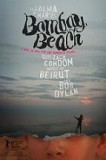| Reviews & Columns |
|
Reviews DVD TV on DVD Blu-ray 4K UHD International DVDs In Theaters Reviews by Studio Video Games Features Collector Series DVDs Easter Egg Database Interviews DVD Talk Radio Feature Articles Columns Anime Talk DVD Savant Horror DVDs The M.O.D. Squad Art House HD Talk Silent DVD
|
DVD Talk Forum |
|
|
| Resources |
|
DVD Price Search Customer Service #'s RCE Info Links |
|
Columns
|
|
|
Bombay Beach

Reviewed at the 2011 Tribeca Film Festival
Alma Har'el's Bombay Beach mixes documentary naturalism and observation with artful peculiarity and an offhandedly surreal quality. I've never seen a film quite like it. This is a compliment. It is a sometimes-tragic, sometimes-befuddling, thoroughly impressionistic portrait of poverty in the desert--specifically, in the area near the Salton Sea, once considered a prime area for California development, now a barren wasteland littered with trailer homes, discarded objects, and "the misfits of the world" (according to Red, who is one of them).
Har'el's film oscillates smoothly between three stories: the Parrish family, two parents (both of whom did time for harboring explosives) and three trying children; Red, the old codger who makes ends meet by selling bootleg cigarettes; and CeeJay, the teenage athlete who moved out to Bombay Beach to live with his dad and get away from the exceedingly dangerous gang climate of inner-city Los Angeles.
The Parrishes have a boy, Benny, who is on a variety of medications--he may be bi-polar, or he may just be hyperactive. They're doing their best to be good parents, but they're both convicted felons (the father insists that they were just keeping themselves busy, "not building a militia") and Child Protective Services have taken the kids away on two previous occasions. Red seems, at first, to be just a spirited old coot, but the more he talks, the more we realize no, he's also kinda racist, and a little crazy to boot. CeeJay engages in colorful (and vulgar) "guy talk" with his buddies, but he develops a crush on the sister of a teammate, and tries to win and keep her while stressing the mediocre grades that could keep him out of the reach of scholarships.
Some of these situations sound pat, but Har'el allows them to develop with subtlety and intricacy; there's so much going on in the scene between the mother and her approaching-teenage daughter ("I was 13 when I met your father...") that you lean forward and hold your breath. Another scene with that combustible family captures, with an accuracy I've never seen on film, the way that a night of aimless drinking can turn people sour--first on each other, then on themselves. Some of these moments are so intimate that they feel like they must have been staged, or at least amped up for the camera--who could let some filmmaker eavesdrop on exchanges this private? Then again, it's the age of reality TV.
But the snug, warm cinematography, heavy on shallow focus and hanging-out ease, is what gives the picture its grace--Har'el has a cockeyed way of framing and capturing events that gives them an oddball, almost Lynchian quality. I'm thinking specifically of the guy laying on the ground with the broken arm, insisting that he's fine; when he's told he'll bleed to death, he muses "Thank God." Her camera is capturing rather startling poverty, and the camera dances right up to the edge of fetishizing that poverty, but it never takes the plunge.
There is no narrator, and no titles to indicate the passage of time--we see CeeJay flirting with Jess, his crush object, and then the next time we see him, he's making a corny poster with epigrams and pictures of the happy couple. We don't know how much time has gone by, but in a way, out here, it doesn't matter. To Har'el's credit, she lets us fill in the gaps; one wishes she'd have extended that notion to the unnecessary subtitles, which more often than not prove a distraction (we can understand what these folks are saying, most of the time, and even when we don't decipher every word, the music of what they're saying is clear).
Occasional interludes and fantasies of Benny are clearly staged, though late in the film, when he puts his head down and refuses to participate in class, it's the one moment that feels like he's playing to the camera (which appears to be positioned nearby). Some may question the purity of Bombay Beach, and sure, the stylization can have moments of falsity. But for goodness' sake, when was the last documentary that was this beautiful to look at? Most importantly, every frame conveys the essence of the place, and the spirit of these people. They are flawed, some of them quite deeply. But they live and breathe, on that screen and off it, and Har'el treats them, in spite of those flaws, with respect and even a dash of reverence. Afterwards, you can't get them out of your head. This is an extraordinary film.
Jason lives in New York. He holds an MA in Cultural Reporting and Criticism from NYU.
|
| Popular Reviews |
| Sponsored Links |
|
|
| Sponsored Links |
|
|
| Release List | Reviews | Shop | Newsletter | Forum | DVD Giveaways | Blu-Ray | Advertise |
|
Copyright 2024 DVDTalk.com All Rights Reserved. Legal Info, Privacy Policy, Terms of Use,
Manage Preferences,
Your Privacy Choices | |||||||











